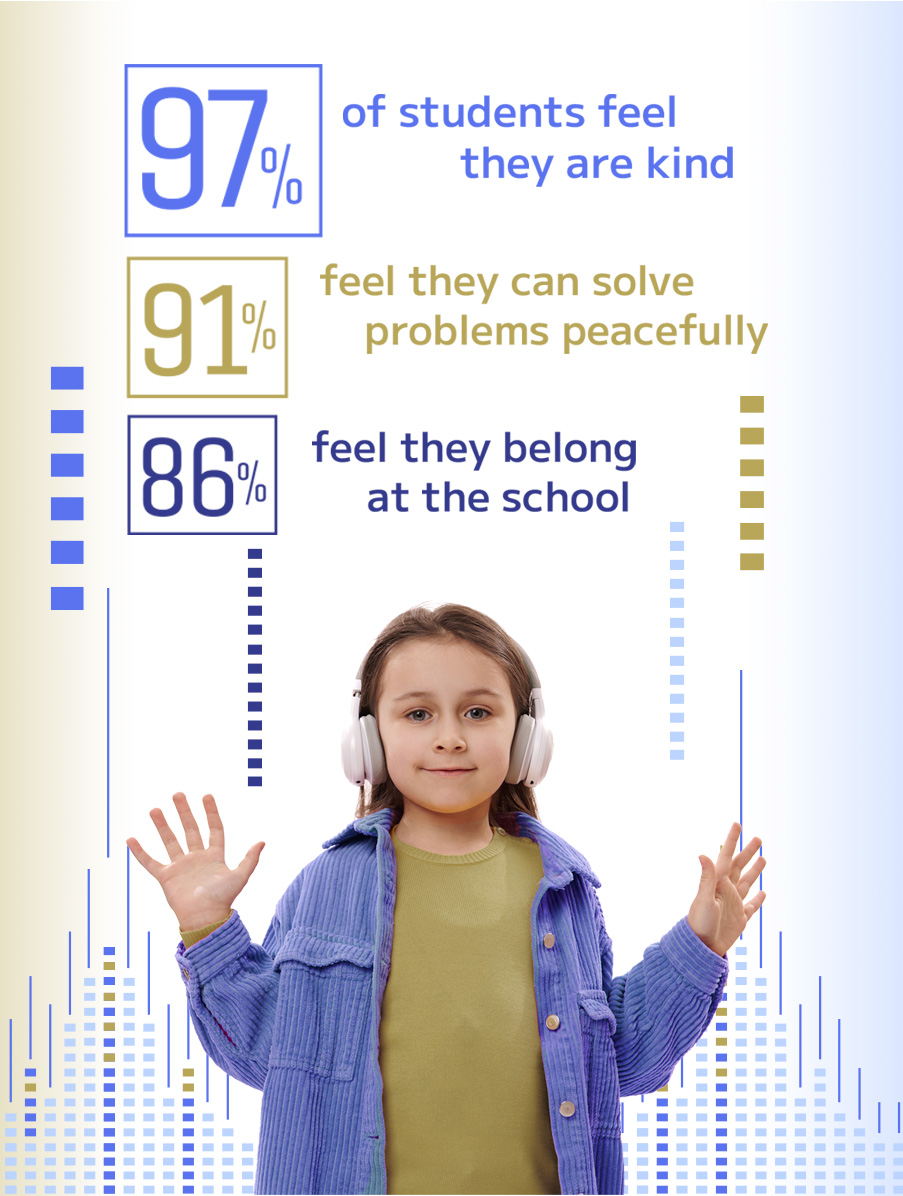School Goal Two
To foster literacy development with a focus on achieving proficiency in reading and writing.
By providing a balanced and foundational early years (K-3) literacy program that address gaps in literacy knowledge (strengthening phonetic and phonemic skills), will we see an increase in literacy proficiency and engagement in all learners?
Literacy skills and competency impact all areas of learning and future success. Research shows that direct teaching of phonological and decoding skills will maximize growth for all learners and will in turn provide a strong foundation for literacy development.
We will draw on various sources of classroom evidence, using this as the basis for our planning and our school-wide literacy practices.
This goal and focused inquiry question aligns directly to our strategic priority in Literacy. Additionally, our intended approaches are deeply connected to First Peoples Principles of Learning.
First Peoples Principles of Learning

The Literacy Goal needs to ensure that:
- Learning is holistic, reflexive, reflective, experiential, and relational (focused on connectedness, on reciprocal relationships, and a sense of place).
- Learning is embedded in memory, history, and story.
- Intervention and intentional teaching of skills through: Heggerty, UFLI, Science of Reading processes, LIT interventionist role;
- Unified early years literacy program approach to ensure sequential skill development, common language, tools and scaffolding;
- Whole school book club;
- Family Book Club will be connected to STEM and Literacy Fairs;
- Literacy committee Literary Pumpkins, Mystery Reader, facilitates whole school activities to promote literacy throughout the year such as book tastings, author visits, literacy BINGO, Story Walks, Aurora Borealis Reads, and more;
- PAC supports funding for a Home Reading Program for Kindergarten and Grade 1 classes;
- Infusion of Story Workshop in K-2 classes to develop writing and storytelling skills.
Over the 2025-26 year, we will track progress on our initiatives identified in this year’s plan. Below is a table showing results for our current grade 2 cohort as of June 2025 using data from the District Literacy Assessment and Summary of Learning Report (report cards) in the area of English Language Arts.
Summary learning, based on evidence gathered over the year, will provide us with key learnings to guide next steps for the 2025-26 school year and beyond.
This year we are embarking on deeper analysis of Grade 2 literacy achievement using data from the District Literacy Assessment, Summary of Learning in English Language Arts, and Data collected from our Literacy Intervention program.
K-3 teachers are participating in a yearlong targeted literacy professional development to further their knowledge and skills in using equitable and inclusive literacy practices with a focus on strengthening phonetic and phonemic skills.









